March 2 stands as one of history’s most eventful days, witnessing the rise and fall of empires, groundbreaking discoveries, and moments that shaped our modern world across centuries of human achievement.
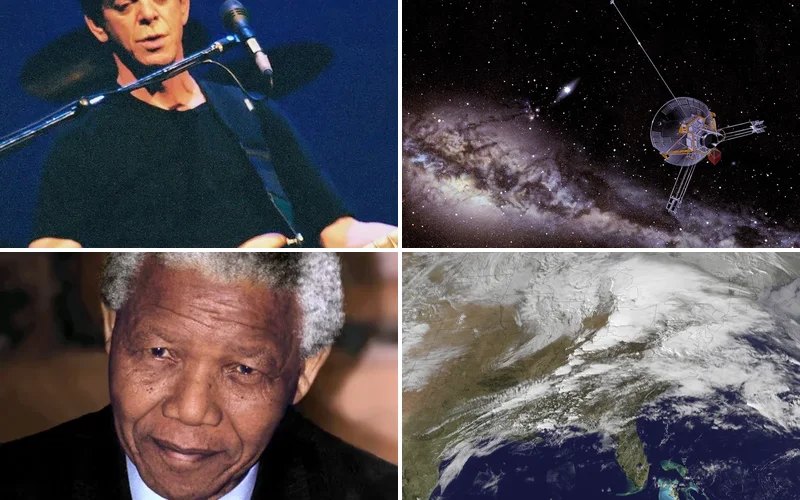
Politics and Government Events on March 2
1901 – Platt Amendment Limits Cuban Autonomy
The U.S. Congress passed the Platt Amendment, severely restricting Cuba’s sovereignty as a condition for American troop withdrawal. This legislation effectively made Cuba a U.S. protectorate despite its nominal independence.
The amendment granted America the right to intervene in Cuban affairs and establish naval bases. This marked a defining moment in American imperial policy throughout the Caribbean region.
1917 – Puerto Ricans Gain U.S. Citizenship
The Jones-Shafroth Act officially granted United States citizenship to all Puerto Ricans. This landmark legislation transformed the legal status of over one million island residents.
The act created a new relationship between Puerto Rico and the mainland United States. Puerto Ricans could now travel freely to the continental U.S. and were subject to federal draft laws.
1962 – Military Coup Seizes Power in Burma
General Ne Win led a military coup that overthrew Burma’s civilian government. The army swiftly took control of key government buildings and communication centers in Rangoon.
This coup ended Burma’s brief experiment with parliamentary democracy after independence. Ne Win’s military regime would rule the country for the next 26 years.
1970 – Rhodesia Declares Republic Status
Rhodesia officially declared itself a republic, severing its final constitutional links with the British Crown. Prime Minister Ian Smith’s government took this step to consolidate white minority rule.
The declaration came five years after Rhodesia’s unilateral independence declaration. This move further isolated the country internationally and intensified sanctions against the regime.
1991 – Nine Former Soviet Republics Join United Nations
Armenia, Azerbaijan, Kazakhstan, Kyrgyzstan, Moldova, Tajikistan, Turkmenistan, Uzbekistan, and San Marino gained UN membership. This mass admission reflected the dramatic reshaping of the international order following the Soviet Union’s collapse.
The new members brought diverse perspectives and challenges to the United Nations. Their admission marked a significant expansion of the organization’s membership and global representation.
2022 – Russian Forces Capture Kherson
Russian military forces captured the strategic Ukrainian city of Kherson during their invasion campaign. This victory gave Russia control over the only regional capital they would successfully occupy.
The capture established Russian military-civilian administration in the city. Kherson’s fall provided Russia with a crucial bridgehead for operations in southern Ukraine.
Military and Naval History on March 2
1941 – German Troops Enter Bulgaria
The first German military units crossed into Bulgaria after the country joined the Axis Pact. This strategic move positioned German forces closer to Greece and Yugoslavia.
Bulgaria’s alignment with Nazi Germany opened a new front in the Balkans. The German presence would prove crucial for the upcoming invasions of Yugoslavia and Greece.
1943 – Allied Victory in Battle of the Bismarck Sea
Allied aircraft decisively defeated a Japanese convoy attempting to reinforce New Guinea. The three-day battle resulted in the destruction of most Japanese transport vessels and their escorts.
This victory effectively ended Japanese attempts to reinforce their positions in New Guinea. The battle marked a turning point in the Pacific theater’s aerial warfare tactics.
1965 – Operation Rolling Thunder Begins
The United States and South Vietnamese Air Force launched Operation Rolling Thunder against North Vietnam. This sustained bombing campaign represented a major escalation in the Vietnam War.
The operation aimed to weaken North Vietnamese resolve and military capabilities. Rolling Thunder would continue for over three years, becoming one of the war’s most controversial aspects.
1991 – Battle of Rumaila Oil Field Ends Gulf War
Coalition forces secured victory at the Rumaila oil field, bringing the 1991 Gulf War to its conclusion. This final major engagement demonstrated the overwhelming superiority of Coalition military technology.
The battle’s outcome sealed Iraq’s defeat and Kuwait’s liberation. Coalition forces had achieved their objectives in just 42 days of combat operations.
2004 – Operation Anaconda Commences in Afghanistan
U.S. forces launched Operation Anaconda, a major offensive against Taliban and al-Qaeda fighters in eastern Afghanistan. The operation targeted enemy strongholds in the mountainous Paktia Province.
The mission aimed to eliminate remaining terrorist networks following the initial invasion. Operation Anaconda would conclude on March 19 after eliminating 500 enemy fighters.
Science and Discovery Milestones on March 2
1972 – Pioneer 10 Launches to Outer Planets

NASA launched the Pioneer 10 space probe from Cape Canaveral on an ambitious mission to explore the outer solar system. The spacecraft carried scientific instruments to study Jupiter and the asteroid belt.
Pioneer 10 became the first human-made object to travel beyond Mars. The probe would later become the first spacecraft to fly by Jupiter and eventually leave the solar system entirely.
1995 – Top Quark Discovery Announced
Researchers at Fermilab announced the discovery of the top quark, completing the Standard Model of particle physics. This fundamental particle had been theorized for decades but never directly observed.
The discovery required massive particle accelerators and sophisticated detection equipment. Finding the top quark validated crucial theories about the universe’s fundamental building blocks.
1998 – Europa’s Hidden Ocean Discovered

Data from the Galileo spacecraft revealed that Jupiter’s moon Europa harbors a liquid ocean beneath its icy crust. This discovery revolutionized understanding of potential life-bearing worlds in our solar system.
The subsurface ocean contains more water than all of Earth’s oceans combined. Europa immediately became a prime target for future astrobiology missions seeking extraterrestrial life.
2017 – Three New Elements Added to Periodic Table
Scientists officially added Moscovium, Tennessine, and Oganesson to the periodic table at a conference in Moscow. These superheavy elements were synthesized in particle accelerators through atomic collision experiments.
The additions completed the seventh row of the periodic table. These elements exist for only milliseconds before decaying but provide insights into atomic structure and nuclear physics.
Cultural and Arts Events on March 2
1933 – King Kong Premieres in New York
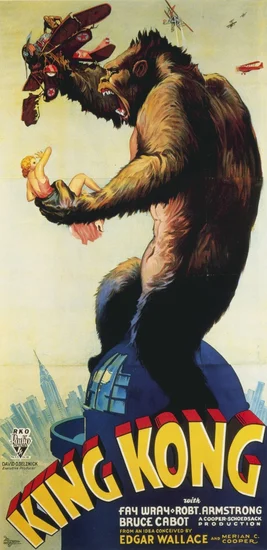
The iconic film King Kong premiered simultaneously at Radio City Music Hall and RKO Roxy theaters in New York City. The groundbreaking monster movie featured revolutionary special effects and stop-motion animation.
The film’s innovative techniques influenced decades of cinema that followed. King Kong became a cultural phenomenon that spawned numerous sequels and remakes throughout film history.
1978 – Charlie Chaplin’s Coffin Stolen

Unknown thieves stole Charlie Chaplin’s coffin from his grave in Switzerland, creating an international sensation. The bizarre crime shocked the entertainment world and captured global media attention.
The theft occurred just months after the legendary comedian’s death. Police eventually recovered the coffin and arrested the perpetrators who had demanded ransom money.
1983 – Compact Discs Launch in America
Compact discs and CD players became commercially available in the United States for the first time. The digital audio format had previously been sold only in the Japanese market.
The CD revolution transformed the music industry by offering superior sound quality and durability. This technology would eventually replace vinyl records and cassette tapes as the dominant audio format.
Religious and Social Events on March 2
1939 – Cardinal Pacelli Becomes Pope Pius XII
Cardinal Eugenio Pacelli was elected Pope, taking the name Pius XII. The papal conclave reached its decision after three ballots, choosing the former Vatican Secretary of State.
Pope Pius XII would lead the Catholic Church through World War II and its aftermath. His papacy lasted 19 years and proved highly influential in modern Catholic doctrine and diplomacy.
1919 – First Communist International Convenes
The First Communist International began meeting in Moscow with delegates from various socialist parties worldwide. Vladimir Lenin organized the gathering to coordinate international communist revolution.
The meeting established the framework for global communist organization. The International would serve as Moscow’s primary tool for spreading communist ideology throughout the world.
1990 – Nelson Mandela Elected ANC Deputy President

Nelson Mandela won election as deputy president of the African National Congress shortly after his release from prison. This position established him as a leading voice in South Africa’s transition to democracy.
Mandela’s election marked a crucial step toward ending apartheid rule. His leadership would prove instrumental in negotiating South Africa’s peaceful transition to majority rule.
Business and Economic Events on March 2
1901 – U.S. Steel Corporation Founded
The merger of Carnegie Steel Company and Federal Steel Company created United States Steel Corporation. This massive consolidation formed the world’s first billion-dollar corporation.
Andrew Carnegie sold his steel empire to J.P. Morgan for $480 million. The new corporation controlled nearly two-thirds of American steel production and employed over 200,000 workers.
1937 – Steel Workers Union Agreement Signed
The Steel Workers Organizing Committee successfully negotiated a collective bargaining agreement with U.S. Steel. This landmark deal established union representation throughout America’s largest steel producer.
The agreement ended decades of violent labor disputes in the steel industry. Other major steel companies quickly followed suit, transforming industrial relations across the sector.
1989 – European Community Bans CFCs
Twelve European Community nations agreed to ban chlorofluorocarbon production by century’s end. This environmental accord addressed growing concerns about ozone layer depletion.
The agreement represented unprecedented international cooperation on environmental issues. The CFC ban would prove crucial in healing the earth’s protective ozone layer.
Transportation and Infrastructure on March 2
1949 – First Non-Stop Round-the-World Flight
Captain James Gallagher landed his B-50 Superfortress Lucky Lady II in Fort Worth, Texas, completing the first non-stop circumnavigation by aircraft. The historic flight lasted 94 hours and one minute.
The mission required four mid-air refuelings to cross the globe. This achievement demonstrated American aviation capabilities and established new possibilities for global air travel.
1969 – Concorde’s Maiden Flight
The Anglo-French supersonic passenger jet Concorde conducted its first test flight from Toulouse, France. The revolutionary aircraft reached speeds exceeding twice the speed of sound.
British and French engineers had collaborated for over a decade developing the supersonic transport. Concorde represented the pinnacle of 20th-century aviation technology and luxury travel.
1970 – Baggeridge Colliery Closes
The closure of Baggeridge Colliery marked the end of over 300 years of coal mining in England’s Black Country. This final mine closure symbolized the decline of Britain’s traditional heavy industry.
The colliery’s closure eliminated hundreds of jobs in the region. The end of coal mining transformed the Black Country’s economy and landscape permanently.
Sports and Recreation on March 2
1962 – Wilt Chamberlain Scores 100 Points

Wilt Chamberlain set the NBA single-game scoring record by tallying 100 points for the Philadelphia Warriors against the New York Knicks. This extraordinary achievement occurred in Hershey, Pennsylvania.
Chamberlain’s teammates deliberately fed him the ball to reach the historic milestone. The record has never been broken and remains one of sports’ most unbreakable achievements.
1955 – Cambodian King Abdicates
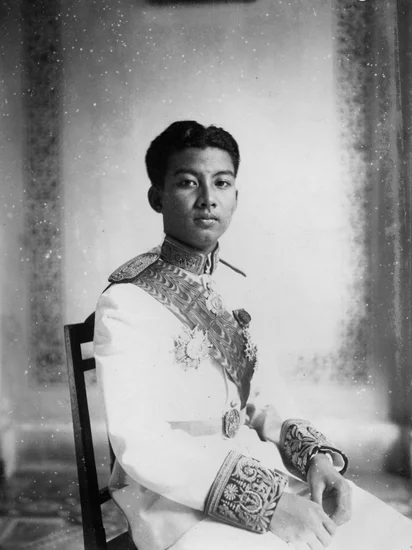
King Norodom Sihanouk of Cambodia abdicated his throne in favor of his father, Norodom Suramarit. This unusual move allowed Sihanouk to enter politics while maintaining royal influence.
The abdication enabled Sihanouk to serve as prime minister under his father’s reign. This political maneuvering would define Cambodian politics for the next decade.
2012 – Deadly Tornado Outbreak Strikes Southern U.S.
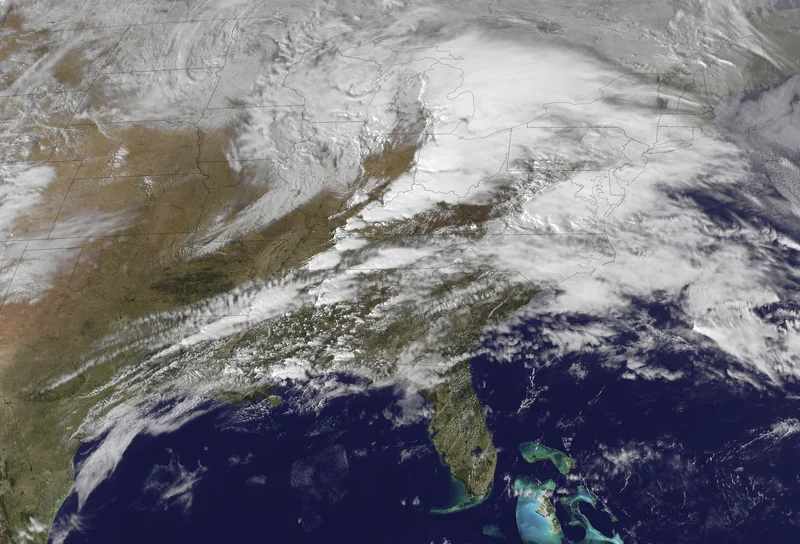
A severe tornado outbreak swept across the Southern United States and Ohio Valley region, producing multiple violent tornadoes. The weather system generated 40 tornado-related fatalities across several states.
The outbreak included several EF4 tornadoes that devastated communities in their paths. Emergency responders worked around the clock to rescue survivors and provide disaster relief.
Notable Births on March 2
1904 – Dr. Seuss Born

Theodor Seuss Geisel, better known as Dr. Seuss, was born in Springfield, Massachusetts. His childhood experiences would later inspire many of his beloved children’s books.
Dr. Seuss revolutionized children’s literature with his whimsical illustrations and memorable characters. His works including “The Cat in the Hat” and “Green Eggs and Ham” became cultural touchstones for generations.
1931 – Mikhail Gorbachev Born
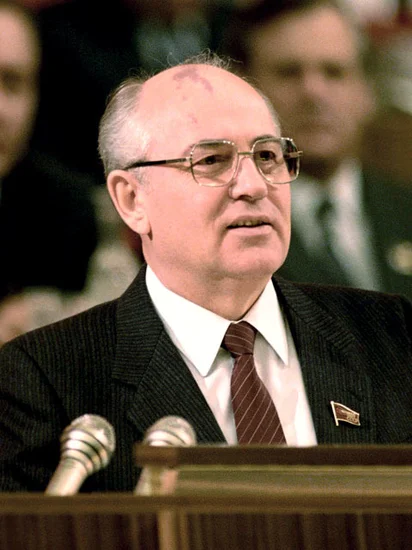
Mikhail Sergeevich Gorbachev was born in Privolnoye, Russia, to a peasant family. His early life in rural Russia shaped his understanding of Soviet society’s challenges.
Gorbachev would rise to become the Soviet Union’s final leader and Nobel Peace Prize laureate. His policies of glasnost and perestroika transformed the Cold War landscape and helped end communist rule.
1962 – Jon Bon Jovi Born
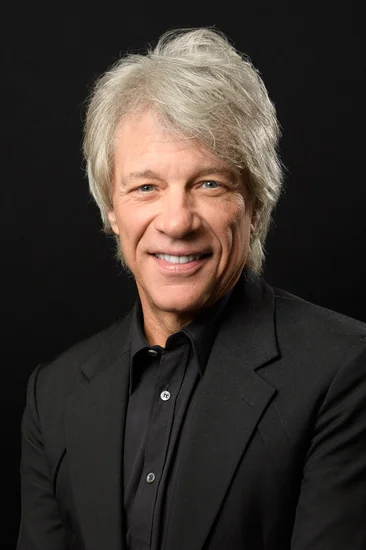
John Francis Bongiovi Jr., known professionally as Jon Bon Jovi, was born in Perth Amboy, New Jersey. His musical talents emerged early through school performances and local bands.
Bon Jovi formed his namesake band in 1983 and achieved global rock stardom. The group’s anthemic songs like “Livin’ on a Prayer” defined 1980s rock music for millions of fans worldwide.
1977 – Chris Martin Born

Christopher Anthony John Martin was born in Exeter, England, and showed early interest in music and performance. His university years at University College London proved formative for his musical development.
Martin co-founded the band Coldplay while studying at university. The group became one of the world’s most successful rock bands with hits like “Yellow” and “Viva la Vida.”
1963 – Anthony Albanese Born

Anthony Norman Albanese was born in Sydney, Australia, to a single mother in public housing. His working-class background influenced his lifelong commitment to social justice and labor politics.
Albanese rose through the Australian Labor Party ranks to become the 31st Prime Minister of Australia. His leadership style emphasizes unity and progressive policies for Australian society.
1942 – Lou Reed Born

Lewis Allan Reed was born in Brooklyn, New York, and developed his musical talents during his teenage years. His early experiences with experimental music shaped his artistic vision.
Reed co-founded the influential band The Velvet Underground with John Cale. His solo career produced iconic songs like “Walk on the Wild Side” that pushed musical boundaries.
1968 – Karen Carpenter Born

Karen Anne Carpenter was born in New Haven, Connecticut, and displayed exceptional musical abilities from childhood. Her drumming skills initially overshadowed her remarkable vocal talents.
Carpenter formed the duo The Carpenters with her brother Richard, achieving massive commercial success. Her warm, distinctive voice made songs like “Close to You” and “We’ve Only Just Begun” timeless classics.
1942 – John Irving Born

John Winslow Irving was born in Exeter, New Hampshire, and developed his storytelling abilities through extensive reading. His educational experiences at Phillips Exeter Academy influenced his literary development.
Irving became one of America’s most celebrated contemporary novelists. His novels including “The World According to Garp” and “The Cider House Rules” earned critical acclaim and popular success.
1901 – Daniel Craig Born

Daniel Wroughton Craig was born in Chester, England, and pursued acting training at the National Youth Theatre. His early stage work established his reputation as a serious dramatic actor.
Craig achieved international fame portraying James Bond in five films beginning with “Casino Royale.” His portrayal brought psychological depth and physical intensity to the iconic character.
Notable Deaths on March 2
1930 – D.H. Lawrence Dies
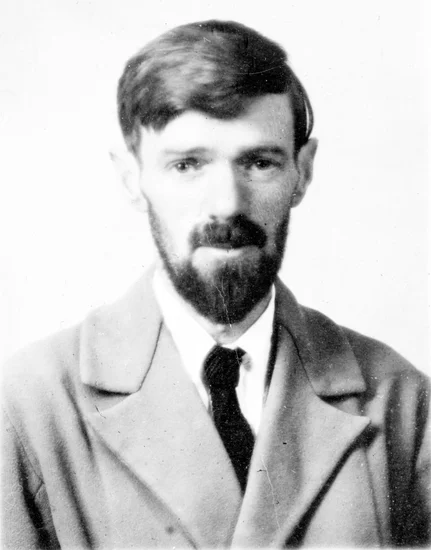
English novelist David Herbert Lawrence died of tuberculosis in Vence, France, at age 44. His controversial works challenged Victorian moral conventions and explored human sexuality frankly.
Lawrence’s novels including “Lady Chatterley’s Lover” and “Women in Love” faced censorship but influenced modern literature profoundly. His writings explored the relationship between industrialization and human nature.
1982 – Philip K. Dick Dies
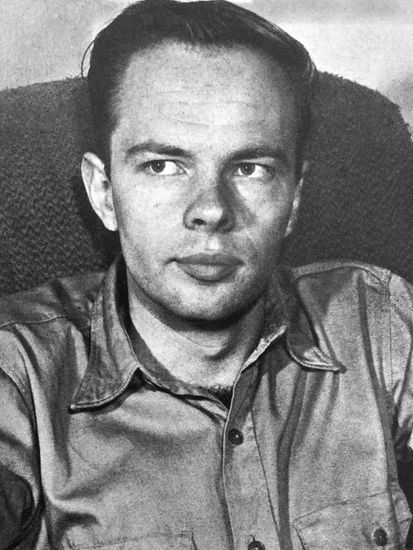
Science fiction author Philip Kindred Dick died in Santa Ana, California, following a series of strokes. His visionary works explored themes of reality, consciousness, and identity in dystopian futures.
Dick’s novels including “Do Androids Dream of Electric Sheep?” and “The Man in the High Castle” inspired numerous film adaptations. His paranoid, philosophical science fiction influenced generations of writers and filmmakers.
1991 – Serge Gainsbourg Dies

French singer-songwriter Serge Gainsbourg died in Paris from a heart attack at age 62. His provocative lyrics and innovative musical arrangements made him a controversial cultural figure.
Gainsbourg’s songs pushed boundaries of taste and censorship throughout his career. His influence on French popular music and culture extended far beyond his lifetime.
1999 – Dusty Springfield Dies

British singer Mary Isobel Catherine Bernadette O’Brien, known as Dusty Springfield, died from breast cancer in Henley-on-Thames. Her distinctive voice and sophisticated style made her an international star.
Springfield’s hits including “Son of a Preacher Man” and “You Don’t Have to Say You Love Me” showcased her remarkable vocal range. She became one of the most successful British female performers of the 1960s.
2008 – Jeff Healey Dies

Canadian blues guitarist Jeff Healey died from cancer in Toronto at age 41. Born blind, he developed a unique guitar technique playing the instrument flat on his lap.
Healey’s virtuosic playing style and powerful voice made him an international blues sensation. His performances in the film “Road House” and hit songs like “Angel Eyes” brought him widespread recognition.
1939 – Howard Carter Dies

British archaeologist Howard Carter died in London at age 64, seventeen years after his greatest discovery. His meticulous excavation methods revolutionized archaeological practice.
Carter’s discovery of Tutankhamun’s intact tomb in 1922 became the most famous archaeological find in history. His careful documentation and preservation techniques set new standards for the field.
Holidays and Observances on March 2
Texas Independence Day
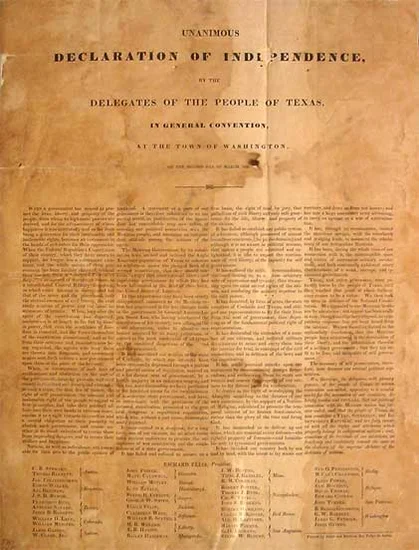
Texas Independence Day commemorates the signing of the Texas Declaration of Independence in 1836. This historic document established the Republic of Texas as an independent nation separate from Mexico.
The holiday celebrates Texas’s unique heritage and path to statehood. Many Texans observe the day with parades, historical reenactments, and educational programs about state history.
National Read Across America Day
National Read Across America Day promotes literacy and reading education throughout the United States. The observance coincides with Dr. Seuss’s birthday, honoring his contribution to children’s literature.
Schools nationwide organize special reading events and activities on this day. The celebration emphasizes the importance of reading skills for academic success and lifelong learning.
Peasants’ Day in Myanmar
Myanmar observes Peasants’ Day to honor the country’s agricultural workers and rural communities. This observance recognizes the vital role of farmers in Myanmar’s economy and society.
The day highlights agricultural achievements and challenges facing rural populations. Government officials often announce new agricultural policies and support programs during Peasants’ Day celebrations.
